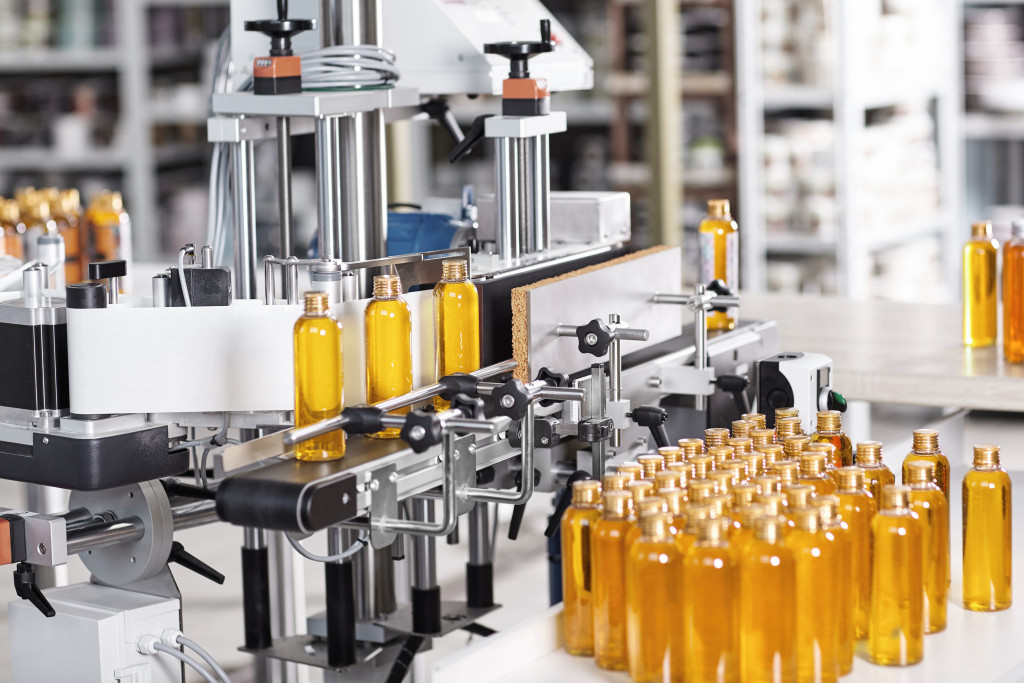As a business owner or manager, you want your industrial plant to run as smoothly and efficiently as possible. That’s why it’s important to be up-to-date on the latest technologies that can help you achieve those goals. Here are a few technologies that are essential in running an industrial plant:
Automation Systems
If you’ve ever stepped into an industrial plant, you know a lot is happening. Machines are whirring, products are moving along conveyor belts, and workers are busy at their stations. To keep the whole operation running smoothly, an automation system is essential.
Automation systems help coordinate all the different moving parts in a factory, ensuring everything is in the right place at the right time. Without an automation system, the risk of costly errors and accidents would be much higher. So if you’re responsible for running an industrial plant, invest in a good automation system – it will save you a lot of headaches in the long run!
Industrial Communication Networks
Running an industrial plant requires the use of various machines and equipment. To function properly, these machines must be able to communicate with each other. That’s where industrial communication networks come in.
By connecting the different parts of a factory, an industrial communication network allows for the efficient exchange of information. This, in turn, helps to improve productivity and reduces the risk of errors. While there are many different industrial communication networks, they all share one common goal: to keep the factory running smoothly.
Industrial Piping Systems

Industrial piping systems are absolutely essential for running an industrial plant. They are responsible for carrying everything from water and chemicals to raw materials and finished products. Without a reliable piping system, keeping an industrial plant up and running would be impossible. There are many different types of industrial piping systems, and each one is designed for a specific purpose.
For example, some systems are used to transport hazardous materials, while others are designed for handling large volumes of liquids. No matter what system you need, it’s important to make time for maintenance. Once such maintenance process is an automatic control valve diagnostics. This helps to ensure that your industrial piping system continues functioning properly. It also helps to prevent any potential accidents or malfunctions.
With a reliable piping system in place, you can rest assured that your industrial plant will be able to run smoothly and efficiently.
Supervisory Control and Data Acquisition (SCADA) Systems
Supervisory Control and Data Acquisition (SCADA) systems are essential for running an industrial plant. They provide the means by which the operator can monitor and control the process remotely. Without a SCADA system, the operator would have to be physically present in the plant to make changes to the process. This would be impractical and could even be dangerous.
A SCADA system allows the operator to monitor the process from a safe location and to make changes to the process as necessary. The system also provides data that can be used to improve the efficiency of the plant. In short, a SCADA system is essential for running an industrial plant safely and efficiently.
Process Control Systems
Process control systems are essential for running an industrial plant. By centrally monitoring and controlling processes, they help to ensure that products are manufactured consistently and efficiently. They also help to reduce waste, improve safety, and minimize environmental impact.
Process control systems can be used for a wide range of applications, from monitoring production line speed to regulating the flow of raw materials. In addition, they can be customized to meet the specific needs of each individual plant. As a result, process control systems play a vital role in the smooth operation of any industrial facility.
Manufacturing Execution Systems (MES)
A Manufacturing Execution System (MES) is a computer application that gives real-time data about the manufacturing process. This information is used to control and optimize production. MES systems are essential for running an industrial plant, as they provide insight into the production process and allow for better decision-making.
MES systems can track production data, such as component usage, material consumption, and throughput. This data can be used to improve yield, reduce waste, and optimize production schedules. In addition, MES systems can be used to monitor equipment performance and diagnose problems. This information is essential for maintaining high levels of productivity and quality control.
These are just some of the essential technologies necessary for running an industrial plant smoothly and efficiently. By staying up-to-date on the latest technologies, you can ensure that your plant is running at peak performance levels and meeting all of your production goals.
